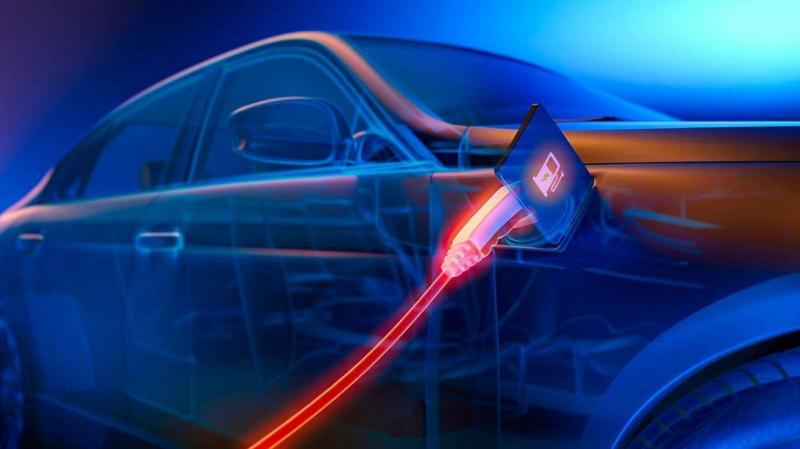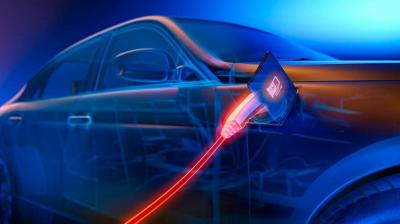A Lebanese company revealed on Saturday the first locally made electric car in a country struggling with economic and living crises, where the electricity network is considered one of the worst in the world. The red car, named "Quds Rise," was showcased in front of cameras during the launch event in Khalda, south of Beirut, attended by the project's founder, Palestinian businessman born in Lebanon, Jihad Mohammad.
Mohammad, 50, told reporters while pointing at the car, which featured a golden emblem of the Dome of the Rock on its front, "This is the first car fully manufactured in Lebanon." According to the project's founder, the price of the electric car is thirty thousand dollars. Mohammad, who is the CEO of the emerging company "EV Electra," hopes that his company will start producing up to ten thousand cars in Lebanon this year, with the first of this production available in the market within a year.
After years of working in the telecommunications sector in Canada, Iraq, and Gulf countries, Mohammad decided to venture into car manufacturing and founded his company in Lebanon nearly four years ago, employing around 300 Lebanese and Palestinian employees. His long-term goal is to compete in the international market for electric and hybrid cars while also achieving sales in the Lebanese market.
The unveiling of this car comes as Lebanon plunges into one of its worst economic crises in decades, with the car market witnessing an unprecedented decline in sales due to the financial crisis and restrictions on bank withdrawals in Lebanese banks.
According to figures from the Lebanese Motor Vehicle Importers Association, traders sold only 62 new cars in the first two months of the current year, approximately 97% less than sales during the same period last year. Since the summer of 2019, amidst a severe economic collapse in Lebanon, the Lebanese pound has gradually depreciated against the dollar amid a sharp liquidity crisis. The black market exchange rate today is close to 12,000 pounds to the dollar, while the official exchange rate remains fixed at 1,507 pounds.
However, the project founder confirmed that anyone wishing to purchase the electric car can pay half of its price in dollars and the other half in Lebanese pounds, at a lower exchange rate compared to the black market, with the remaining amount payable over five years without interest.
Lebanon relies on fuel to generate energy, and the available quantity does not suffice for the country, which has a population of about six million people struggling with long power outages that sometimes exceed 12 hours a day. To address the challenges of power outages, the company plans to establish around 100 charging stations in various parts of the country to power its vehicles, while the company management confirmed that it is working on a project for charging through solar and wind energy.
On her part, environmental expert Jessica Obeid welcomed the new vehicle, stating to AFP, "The energy sector is the largest contributor to greenhouse gas emissions in Lebanon." She added, "If electric cars are equipped with solar-powered charging stations, it would be a step in the right direction."




